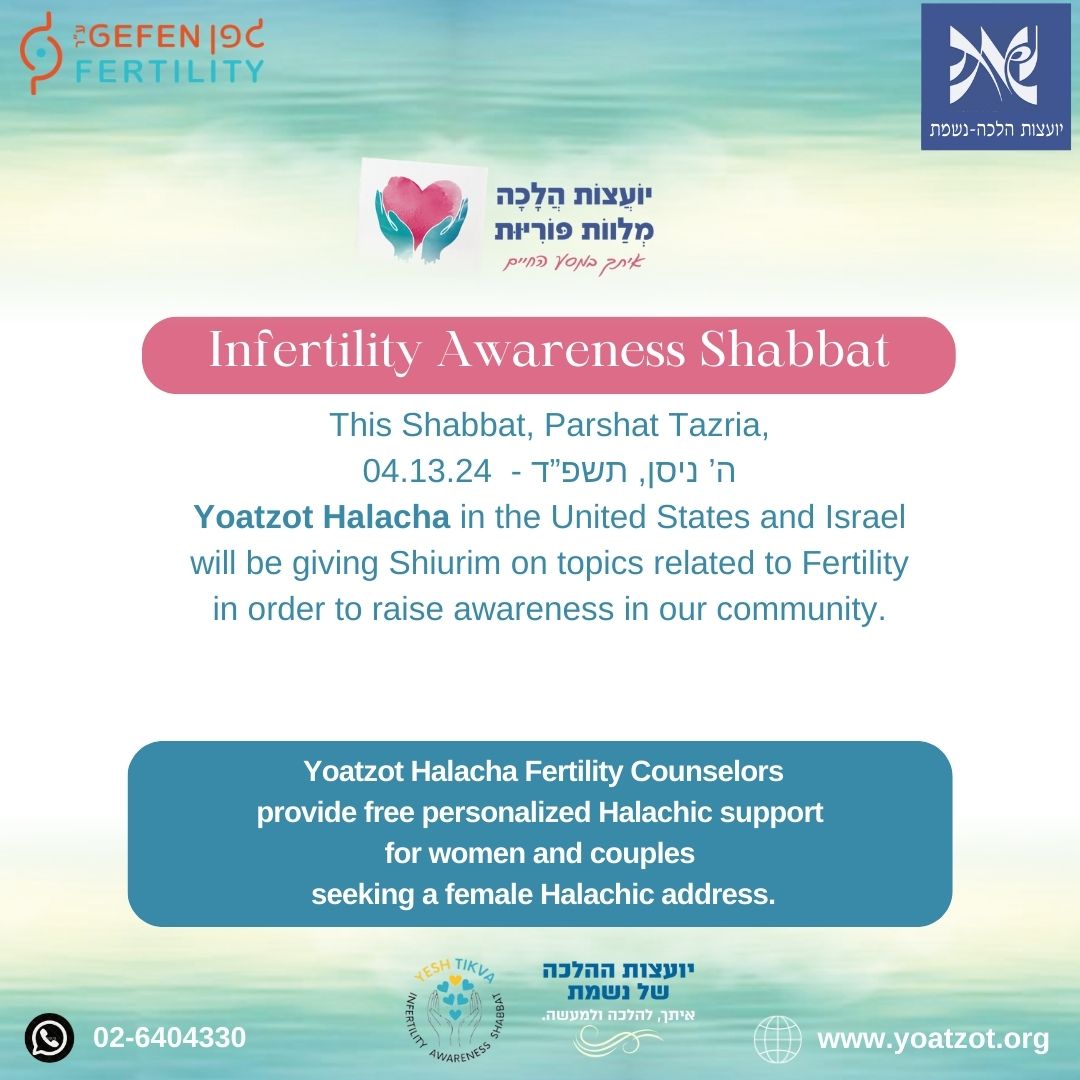The weeks following childbirth are often marked by strong emotions, mood swings, and fatigue. It is important for the new mother to have support from her family and community as she recovers from the birth and adjusts to the joyful and overwhelming reality of caring for a new infant.
Mikveh After Childbirth
Bleeding and Discharge
After giving birth, women commonly bleed for weeks. The exact duration of postpartum uterine discharge (lochia) varies widely from woman to woman and from birth to birth for a given woman. The median duration of discharge is 36 days, but the discharge toward the end of this time is often not of a niddah color. When the niddah-colored bleeding comes to an end, a woman can undertake the process of becoming tehorah.
(Following the vaginal delivery of a girl, a woman may not immerse until fourteen days have elapsed since the birth. In practice, postpartum bleeding rarely ends soon enough for her to consider immersing earlier.)
It is common for postpartum bleeding to stop and then start again. Often, a woman will get a clean hefsek taharah, but find that bleeding resumes during the shivah neki’im.
One should not hesitate to ask halachic questions during this process. Light browns (the color of coffee with milk or lighter, with no reddish tinge) are acceptable and do not require evaluation. Darker browns, or browns that seem to be reddish, should be evaluated by a halachic authority.
Women often do not to get to the mikveh until at least a month or two after giving birth. If difficulties continue after two months, one should discuss the situation with a halachic authority and physician.
(Sometimes, confusion arises based on the laws of immersion after the birth of a boy or a girl that appear in the Torah (Vayikra 12). Due to various halachic developments over the centuries, practical halacha today is as presented above. Please see here for more details.)
Bedikot
Halachically, the process of becoming tehorah postpartum resembles the process any time a woman becomes niddah. A woman performs a hefsek taharah, counts shivah neki’im, and immerses in the mikveh.
However, the vaginal area is more sensitive postpartum, especially if there are stitches. Therefore, the moch dachuk may be omitted for the first cycle, and one should perform bedikot with extra care. Some women find it helpful to dampen the bedikah cloth slightly with water, or to perform bedikot lying down or in a more shallow fashion.
If bedikot are nevertheless difficult or uncomfortable, there may be room to reduce the number performed.
Timing Immersion and the Postpartum Check Up
Many health care providers instruct couples to delay marital relations until about six weeks postpartum, following a doctor’s visit.
A woman who is able to complete her shivah neki’im before this point may immerse in the mikveh so that the couple can stop keeping the harchakot, which can be important for the couple’s relationship and for baby care, even if relations are off the table.
If a woman has concerns about the safety of bedikot, mikveh preparations, or mikveh immersion, she should discuss them with her healthcare provider.
Contraception
If a couple are considering using contraception, the check-up is a good time to discuss or pursue available options with one’s healthcare provider. We recommend reading about the options in advance of a visit under “Family Planning.”
It is fairly common for nursing women to use progesterone-only pills (also known as mini-pills) postpartum. These pills can be associated with staining and complicate the process of becoming tehorah. A woman may wish to consult her physician about waiting until after her first immersion to begin the pills, and using short-term contraception such as spermicide in the interim.
This article was updated on 14 December, 2021














